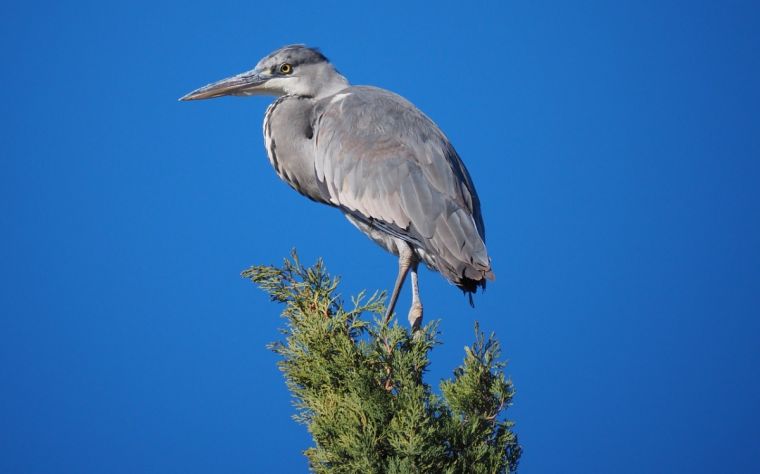Birds of the Bible: How they teach spiritual truth
On National Bird Day, it's lovely to think of our feathered friends and perhaps put some extra peanuts in the garden feeder. We aren't inclined to read very much into their habits, though the sight of two swans making that heart shape with their necks always gets photographers snapping.

In the Bible, though, birds are often mentioned because of some spiritual or poetical significance. In Psalm 102:6 they are symbols of loneliness: 'I resemble a pelican of the wilderness; I have become like an owl of the waste places.' In Job 39:26 it's part of the poet's defence of God's wisdom: 'Does the hawk take flight by your wisdom, and spread its wings towards the south?'
In Psalm 84:3 a bird is an emblem of God's hospitality: 'The bird also has found a house, And the swallow a nest for herself, where she may lay her young, even your altars, O Lordof hosts, my King and my God.'
Sometimes a bird is a metaphor for God's power: 'You yourselves have seen what I did to the Egyptians, and how I bore you on eagles' wings, and brought you to myself' (Exodus 19:4); or it might symbolise God's care: 'Jerusalem, Jerusalem, who kills the prophets and stones those who are sent to her! How often I wanted to gather your children together, the way a hen gathers her chicks under her wings, and you were unwilling' (Matthew 23:37). Sometimes the image of a bird is used to poke fun at pretentiousness: 'The strutting rooster, the male goat also, and a king when his army is with him' (Proverbs 30:31).
On the other hand, sometimes a bird is just a bird – a useful source of food, like the quails in the wilderness, or a dove that might be sacrificed in the Temple.
Of all the birds in the Bible, the safest were probably the ones regarded as ritually unclean and not to be eaten. It's not clear why all these birds were included, though as some were carrion-eaters they might have ingested unclean food themselves, but in Leviticus 11:13-19 there is a long list: 'These are the birds you are to regard as unclean and not eat because they are unclean: the eagle, the vulture, the black vulture, the red kite, any kind of black kite, any kind of raven, the horned owl, the screech owl, the gull, any kind of hawk, the little owl, the cormorant, the great owl, the white owl, the desert owl, the osprey, the stork, any kind of heron, the hoopoe and the bat.' There's a similar list in Deuteronomy 14: 12-17.
It's said there are sermons in stones; there are sermons in birds, too. John Stott, the great Bible teacher and pastor, was fond of birds and wrote The Birds Our Teachers: Biblical lessons from a life-long bird-watcher. The title is from Martin Luther's exhortation from the Sermon on the Mount: 'Let the little birds be your theologians'.
Follow Mark Woods on Twitter: @RevMarkWoods











